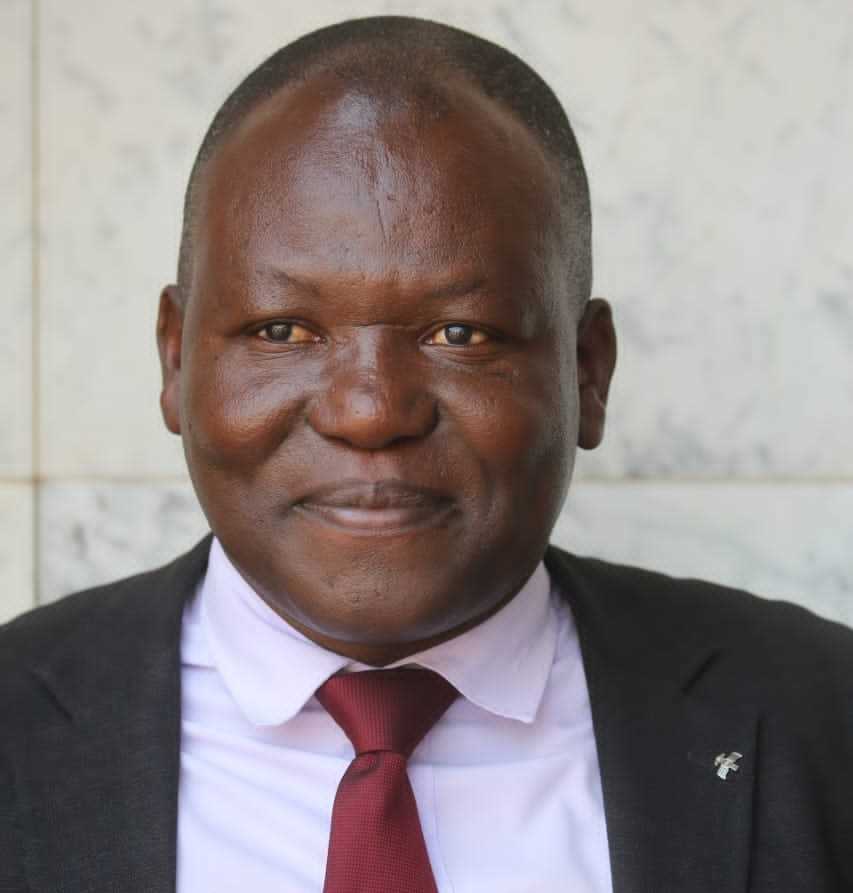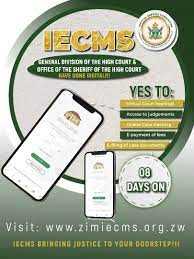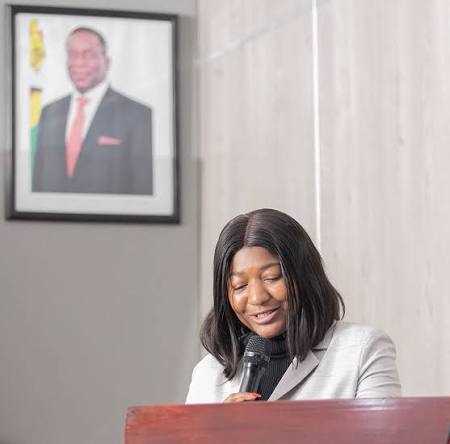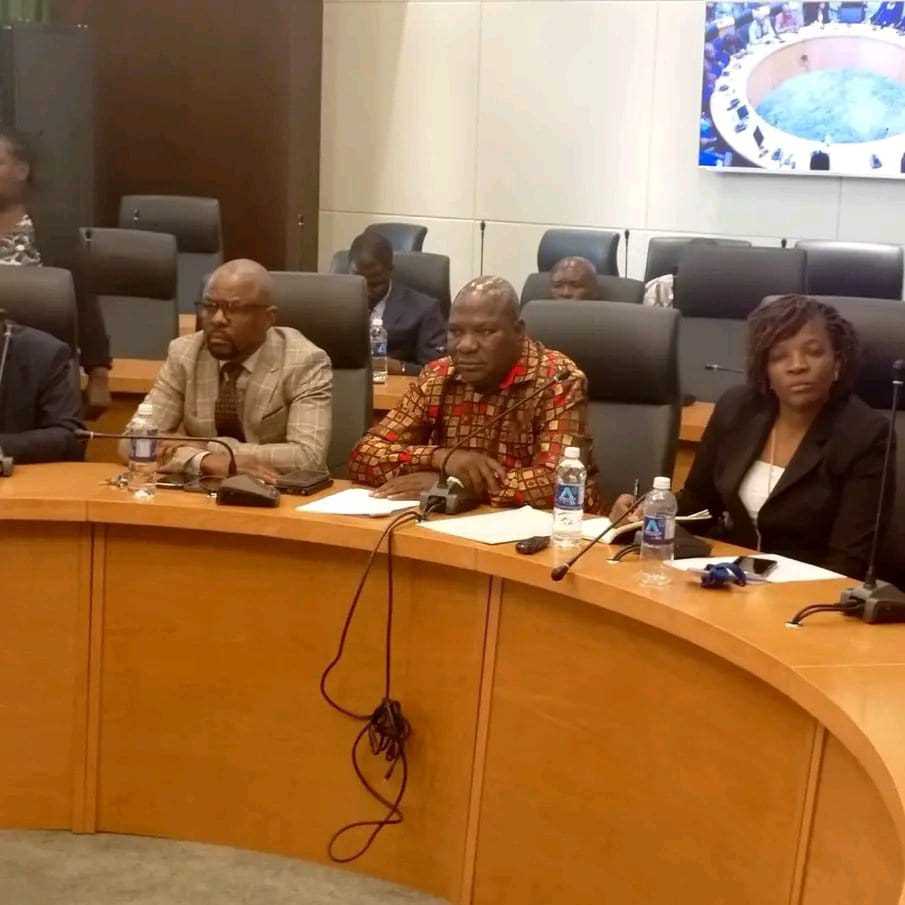
Michael Mashiri
Tanaka Chikwere, 26, a Harare resident thinks technophobia and limited technological advancement are the biggest challenges to Zimbabwe’s infantile virtual justice system.
"It makes people fear court processes more as they are intimidated by the camera on its own. There are also challenges of network, some cases might end up not being finalised because the network might be a challenge in the process," he said.
He was commenting on the third phase of the Zimbabwe Judicial Service Commission Integrated Electronic Case Management System launched on September 1, 2023.
This phase completes the computerisation of the country's superior courts
The first IECMS phase launched on May 1, 2022, and it covered the Constitutional Court, the Supreme Court and the Commercial Division of the High Court.
On February 1, 2023, the launch of the second phase in the saw the programme extending to the Labour Court and Administrative Court.
With a smart gadget and internet connectivity, valid email address witnesses and other stakeholders can lodge their statements remotely during the court proceedings.
Judicial Service Commission Head of Corporate Services, Daniel Nemukuyu said the virtual court system was developed to purpose.
"The virtual hearing don't use social media platforms. The systems were specifically designed for the courts.
"The system is built in the current and modern architecture which has the database in an offline state. A database is where all information is stored. When a hacker hack a system, he or she will have access to the database.
"Normally, systems with online databases are the ones that are hacked. Penetration tests also have been done during the testing of the system. The Judicial Service Commission will also have personnel who will work 24 hours monitoring the system and running intrusion tests to avoid hacking," he said.

The transition to IECMS attracted examination from different court stakeholders as it also came under scrutiny from the government, lawyers, and the accused in various aspects.
These included the Zimbabwe Republic Police, Zimbabwe Prisons and Correctional Service, Law Society of Zimbabwe, Attorney General, National Prosecuting Authority, Zimbabwe Anti-Corruption Commission, Ministry of Justice, Legal and Parliamentary affairs through Legal Aid Directorate and the members of the public.
Farai Machivenyika, 40, said she thinks virtual courts are a good idea but she hope there are plans effective infrastructure development.
"This is a good initiative, but in places like Zimbabwe and South Africa it might be a challenge considering what has been happening in terms of the electricity availability.
"If the power goes out and no backup is provided it will take the whole process backwards, worse in the rural areas where having electricity and network connectivity is a challenge on its own," she said.
While the Covid-19 lockdowns and work at home measures forced almost all African countries into some form of virtual court hearings, these were really ordinary court session held over platforms like Zoom and Teams and ended when restrictive measures were relaxed.
Chris Madzima, 43, said the virtual courts would make the justice delivery more effective and less cumbersome.
"Adopting virtual courts will lead to more efficient ways of running judiciaries. This is because having such a court more is likely to change in terms of inefficient filling systems, courtroom bureaucracies, legal tactics that can be used to delay court hearings, issues to do with the production of evidence.
"It might also help in the ease of accessing court documents. This assist in the time management aspect," he said.
Moffat Makuvatsine, a legal practitioner said more work needs to be put into the initiative before it can fly.
"At the moment, if truth be told, the IECMS on its own has caused untold suffering to the justice delivery system.
"Imagine a person is granted bail today and has to wait until the following day in order to get the bail order uploaded onto the IECMS. In the past it would be a same day thing.
Related Stories
“Filing of documents is now a nightmare yet some of them will be requiring urgency. Our courts at the moment should not let go the paper system as it should be allowed to compliment the newly born IECMS,” Makuvatsine said.
He said that some players in the legal fraternity are still grappling with understand the system.
"The Judicial Service Commission, JSC, has and is still trying it's level best to familiarise the initiative with the legal fraternity through workshops, but because its normally difficult to bring lawyers under one roof due to the nature of their work, some are still to catch up," he said.
Makuvatsine said there is also a distinct disadvantage for unrepresented people.
In spite of the challenges, Makuvatsine indicated that having virtual courts was a good thing especially if there was adjustments to the issue of connectivity.
"Given the necessary resources, it is a viable way of dealing with cases. At times there is no need to gather for something that can be handled with parties virtually as had become the norm during the Covid-19 era,” he said.
He added that if improvements were put in place to the current connectivity settings, the future of virtual courts efficiency was great as there would be no need to deal with congestion and other related aspects of going to file and process of going to court.
"What takes away its viability is the technological glitches associated with the system mainly bordering on Internet connectivity. Backlogs cannot be ruled out when a system malfunctions. Cases continue to come despite the fact that the internet finds itself clogged," he said.
He added that virtual courts were efficient and cost effective as the Zimbabwe Prisons and Correctional Service will not have to always transport the accused to the courtroom for physical appearances.
Nenyasha Guwe, 19, said that there is need to reduce data costs otherwise the virtual court will prove just as expensive as physically going to a court
Makuvatsine also highlighted that witnesses were in a position to follow cases if they have the necessary gadgets and internet connection.
In a recent report Judge President Mary Zimba Dube said the e-system was failing litigants
“The ICT department has advised that the system challenges are largely being caused by too many sessions being conducted concurrently.
“The ICT department has also advised that the system can only accommodate a set number of concurrent sessions at any given time. It is only possible to deal with 7 matters per session inclusive of all High Court Seats,” it reads.
According to internetworldstats.com, countries that have low internet penetration face serious challenges in adopting the virtual courts system. This has direct impact on Africa’s move towards virtual justice systems.
Zimbabwe had an internet penetration rate of 65.3% in 2022 according to the Postal & Telecommunications Regulatory Authority of Zimbabwe.
In the Southern African Development Community South Africa with, a mobile penetration rate of 72.3 percent, has led the virtual justice delivery initiative with e-filling enabled by the Court Online System.
This allows for electronic document sharing and filing, speedy documents inspection and faster, accurate and real time feedback on cases.
The country has however experienced challenges with most observers citing inadequate ICT infrastructure among other issues.
With a mobile penetration rate of 53.0 percent Namibia in May 2023 that is considering a virtual court system to clear case backlogs. But according to the Judiciary Executive Director, massive financial resources are needed to make the dream a reality.
Most SADC countries need to improve their internet access for viable Angola 32.6 percent, Tanzania 31.6 percent and Zambia 21.2 percent.
“The question, therefore, is not whether a virtual hearing should be conducted, but rather whether there is sufficient justification for incurring additional expenses associated with a physical hearing. What remains to be seen is whether the shift to virtual hearings is practical and feasible given the infrastructure investment needed and the other challenges to overcome, or whether it will help relieve some of the existing pressures, particularly on the court systems in Africa,” wrote Richard Laudy and Thethe Mokele in their paper titled The Strong Case For Virtual Hearings In Africa published in 2021.


















Leave Comments